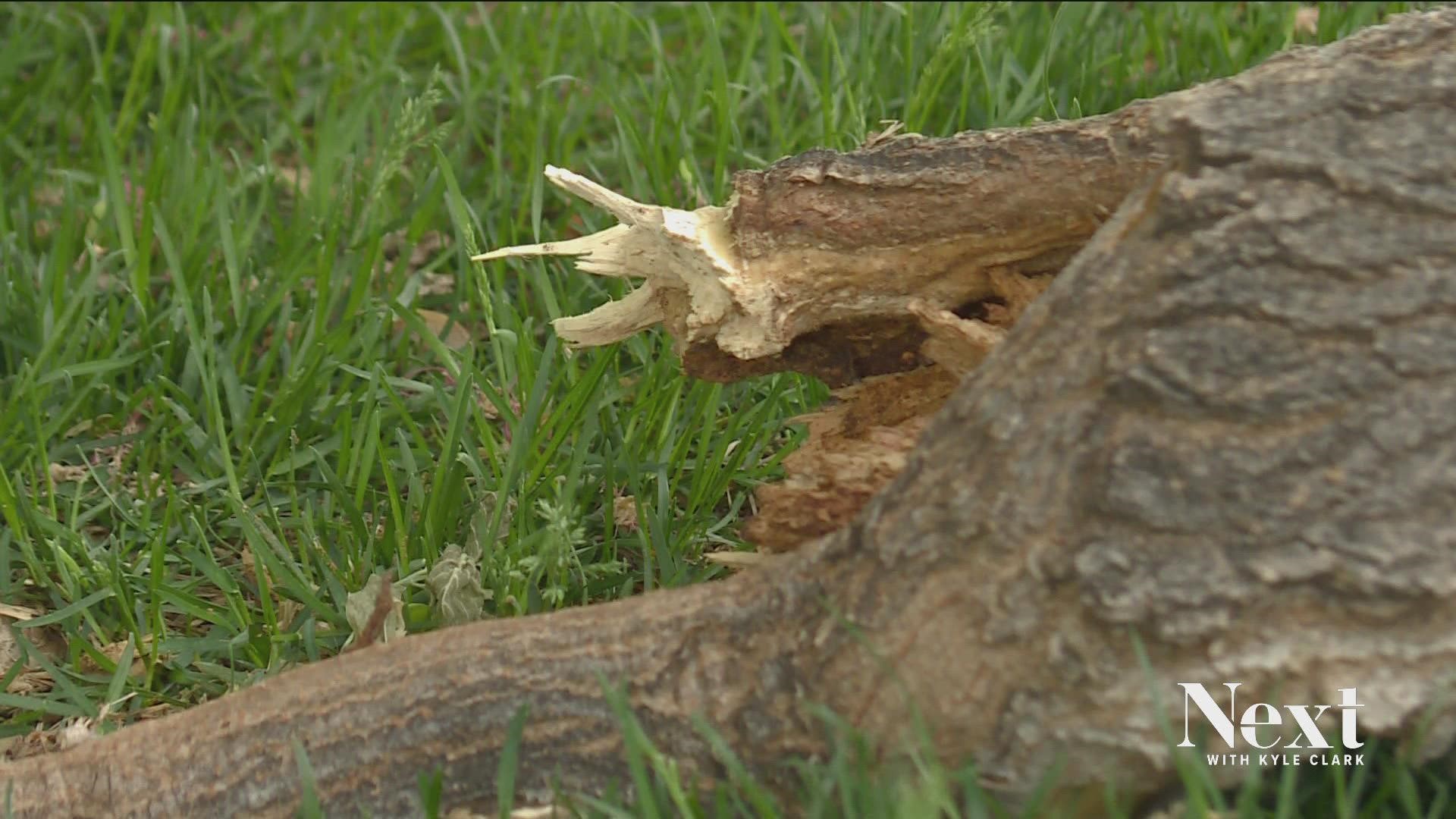DENVER — If a tree falls…
No, this is not a joke.
If a tree falls from city property onto your property, who is responsible?
The answer depends on the city and depends on the property.
"The thing's the size of a rhinoceros probably, weight-wise, so I haven't been able to investigate underneath," said Arvada resident Todd Hochmuth. "It's sitting on my daughter's Playskool playground right now."
Hochmuth lives in west Arvada behind the city-owned Church Ditch canal.
Branches from trees on the city-owned side have fallen onto his fence and daughter's playground.
He reached out to the city on Twitter and got some fast resolution.
"The process itself was really not that bad. I went on Twitter, tweeted the city, they responded almost immediately and, ironically today actually, I got a response from the city. They said it would be three business days and today is business day two. I feel like they did what they said they were going to do," said Hochmuth.
It is likely the city is responsible for clearing the branches and, perhaps, any damage.
That is not the case in a more common situation, of a tree or branch in a right-of-way falling onto private property.
"If it feels like the city always wins, the answer is, you're right," said former Denver city attorney Scott Martinez.
Trees in the right-of-way, the area between the sidewalk and the curb, are the responsibility of the property owner. Although, in Denver, along designated parkways (like 6th Avenue, 17th Avenue, Monaco Avenue and 46th Avenue), the city is responsible for not just the median trees, but the right-of-way trees as well.
For the majority who are not along a designated parkway, the tree and any damage, is the property owner's problem.
"Even if the city put the tree there in the first place, it's your tree now, it's your branch, it's your job to take care of that tree and make sure that it doesn't fall down on other people's property," said Martinez.
In Denver, city inspectors will come around and check on the tree. The city could even take back some of the right-of-way for city needs. Regardless, the tree and any damage, is still on you.
"If it's your tree on your property and it falls on something else, it's your responsibility," said Martinez.
These are the same rights-of-way that have been converted into "hostile architecture" in certain parts of the Denver.
In Capitol Hill, for example, many rights-of-way have been fenced off or covered in boulders, as a way to prevent people from camping on those city-owned plots of land.
In many cases, a property owner needs to seek a permit and permission from the city to landscape the right-of-way area, even with fencing, yet the trees within the rights-of-way, are not maintained by the city at all.
"When we think about the law when it comes to things, the city, the government, has the benefit of the doubt when it gets to regulate those things. When it comes to people and their behaviors, the people get the benefit of the doubt," said Martinez. "Impinging upon the way that people act is protected by our Constitution."
SUGGESTED VIDEOS: Full Episodes of Next with Kyle Clark

